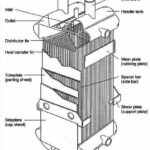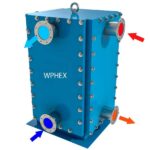Shaft horsepower is one of the common calculations carried out by engineers, the short article below provides an estimation method.
Check out the difference between horsepower vs shaft horsepower
What is a Horsepower?
Horsepower (HP) is a unit of measurement of power. The unit is commonly used with referring to the power an engine or motor can produce.

The term horsepower was first adapted by James Watt to compare the output of steam engines with the power of horses. James Watt was looking for a way to prove his steam engine power so he derived a way by using work horses for his calculation. He observed mill horses at work and calculated that a horse could turn a mill wheel 144 times in an hour. The wheel was 12 feet (3.7 m) in radius. He defined and calculated the horsepower as 33,000 ft⋅lbf/min (550 ft.lbf/s).
The unit was then extended for measurements and used for piston engines, turbines, motors and shafts … and many more equipment
Today;
1 hp (imperial horsepower) = 745.7 Watts (J/s),
and
1 hp (metric horsepower) = 735.5 Watts (J/s)
What is a Shaft?
A shaft is a rotating machine element, usually circular in cross section, which is used to transmit power from one part to another, or from a machine which produces power to a machine which absorbs power.

How to calculate the shaft horsepower
The method below is a short cut which has been outlined in reference 1, which provides an estimation of the shaft horsepower;
Case 1: No Stresses due to bending, weight of the shaft, pulleys, gears, or sprockets:
Equation:
HP = D3N / 50
Where;
D = Diameter of shaft, inches
N = Revolutions per minute (rpm)
Case 2: Heavy duty service:
Equation:
HP= D3N / 125
Shaft horsepower example
What shaft horsepower can be transmitted to an atmospheric cooling coil by a 4 inch shaft turning at 2800 rpm?
Equation 2 will be used in this case,
HP = D3N / 125
HP = ((4)3 x 2800) / 125 = 1433.6 Horsepower
References
- E. W. McAllister, Pipelines rules of Thumb Handbook, 7th Edition
Keywords: shaft horsepower, horsepower










